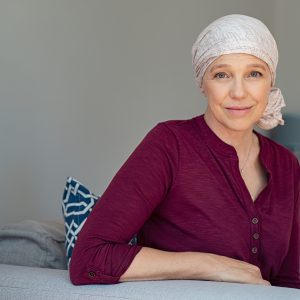Cancer Conundrum: Breast Cancer And The Burdens Of Surviving

Cancer Conundrum: Breast Cancer And The Burdens Of Surviving
February 26, 2020
It’s a good news/bad news story. The good news is that death rates from breast cancer are declining, even if not as fast and far as we would all hope. Women over 60 constitute the largest group of breast cancer survivors, so for many mature women, breast cancer has been just one more challenge on the road to getting older. However, that’s where the bad news comes in: either for women now managing the “chronic disease” of breast cancer or for those who are considered cancer-free, the remnants of dealing with this disease may linger well beyond the point when treatments are done.
First the physical issues. As reported from a new study published in Cancer, older breast cancer survivors experience a range of symptoms posing burdens and impacting well-being in a way not seen in women without a breast cancer history. From cardiac conditions to cognitive problems, women with a history of breast cancer may experience side-effects from treatments well beyond the end of those treatments. Whether due to chemo, hormone therapy or radiation, survivors may also experience sleep problems, anxiety or neuropathy, in ways not often picked up by their primary care physicians. The smart thinking? It’s time to screen for these symptoms in older women with a breast cancer history, to lessen whatever burdens possible as these women age. There is also evidence to suggest that women with a history of breast cancer may contract cardiac problems as a result of their prior treatments, and are more likely to die of heart disease than a cancer recurrence. In fact, there’s a new field of cardio-oncology to recognize the need to protect the heart while treating for cancer.
But the by-products of breast cancer treatment are not only physical and emotional. There’s now a clear understanding that the financial ramifications can last decades after treatment has ceased. A recent article in Next Avenue by writer Liz Seegert details how financially perilous it can be to be a breast cancer “survivor.” The costs of treating breast cancer are apparently higher than any other malignancy and those in a “chronic” mode report making desperate choices between ongoing therapies and basic necessities of life. Women of color are most affected by this “financial toxicity” and just as they’re getting older, many women must raid their retirement savings to sustain their financial health during treatment. While there is an organization that helps women facing this sort of financial peril (The Pink Fund), the reality of facing financial ruin while negotiating survivorship seems such an unfortunate fate to face.
One other area of controversy when it comes to breast cancer? New research suggests that for women over 75, regular mammography screening will not be of benefit. While every woman is unique and must discuss this with her own physician, new research published in The Annals of Internal Medicine leads to the conclusion that continuing mammography in women over 75 may not decrease their chances of dying of breast cancer. For some women who abhor the physical pain of mammography, this may be welcome news. One other piece of welcome news? Researchers in Canada have devised an inexpensive, low intervention machine that combines microwave technology with artificial intelligence as a new possible way to screen women for early signs of breast cancer, without resorting to radiation and the burdens of mammography.







